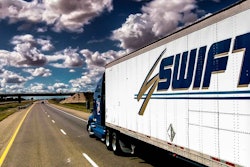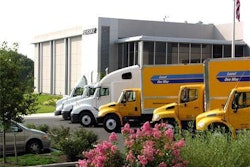
Drivers signed on as independent contractors for the Long Beach, Calif.-based Pac Anchor Transportation were misclassified as contractors and should have instead been classified as employees of the carrier, the California Supreme Court ruled unanimously this week.
Because of the misclassification, the drivers were denied certain benefits they were entitled to as employees, the court ruled.
This is the third ruling in the last two months in California that fell on the side of drivers or regulators claiming contractors were misclassified so carriers would not have to comply with certain labor laws or pay certain taxes or insurance.
The California Construction Truck Association called the ruling “another setback,” referring specifically to a ruling earlier this month that said contract drivers for Penske Logistics were still entitled to California’s required meal and rest breaks for employees, with the court ruling the Federal Aviation Administration Authorization Act of 1994 did not preempt California’s rest break law.
The rulings should cause carriers to “reexamine their employment/leasing practices,” CCTA said in its statement. “The proper use of owner-operators can still be a preferable business model — if done fairly and correctly.”
The Pac Anchor legal action was brought by the state itself, who claimed the carrier was violating the state’s unfair competition law. Like the Penske case, the legal question at hand was whether the FAAA preempted California’s unfair competition law. Judges again ruled it did not.
Alfredo Barajas, owner and manager of Pac Anchor, was also named as a defendant in the case. He owns about 75 trucks and signs drivers into lease agreements, according to court documents.
He and the company classify the drivers as independent contractors, thereby avoiding paying unemployment insurance taxes, employment training fund taxes and withheld state disability insurance taxes, the state alleged. It also allowed Pac Anchor to skip providing worker’s compensation, itemized written wage statements to the drivers, reimbursement for business expenses and losses and ensuring payment of California’s minimum wage.
By avoiding these expenses, the carrier gained an unfair advantage over its competitors and “deprived employees of benefits and protections to which they are entitled,” according to the claims brought by the state.
The drivers “invest no capital, own no trucks and do not use their own tools or equipment,” the court documents note. “Drivers are often employed for extended time periods, but they can be discharged without cause, have no operational control, have no other customers, take all instruction from defendants and have no Department of Transportation operating authority or permits to engage independently in cargo transport,” the ruling said.
Lower courts had ruled in favor of the carrier, citing prior rulings about FAAA exemptions and state law preemption.
However, California’s high court disagreed, siding with state regulators that the drivers at Pac Anchor were misclassified and therefore, in their case, the FAAA did not preempt California’s law.
A U.S. Court of Appeals last month ruled another California carrier, Affinity Logistics, had also misclassified employees as contractors by making them sign lease agreements. Similarly, the drivers didn’t own the trucks and weren’t allowed to take them home, even though they paid $300 a week to lease them. They also had to wear uniforms, were paid a flat rate per stop and had to clear off time weeks in advance. Click here to read CCJ’s coverage of that case.











